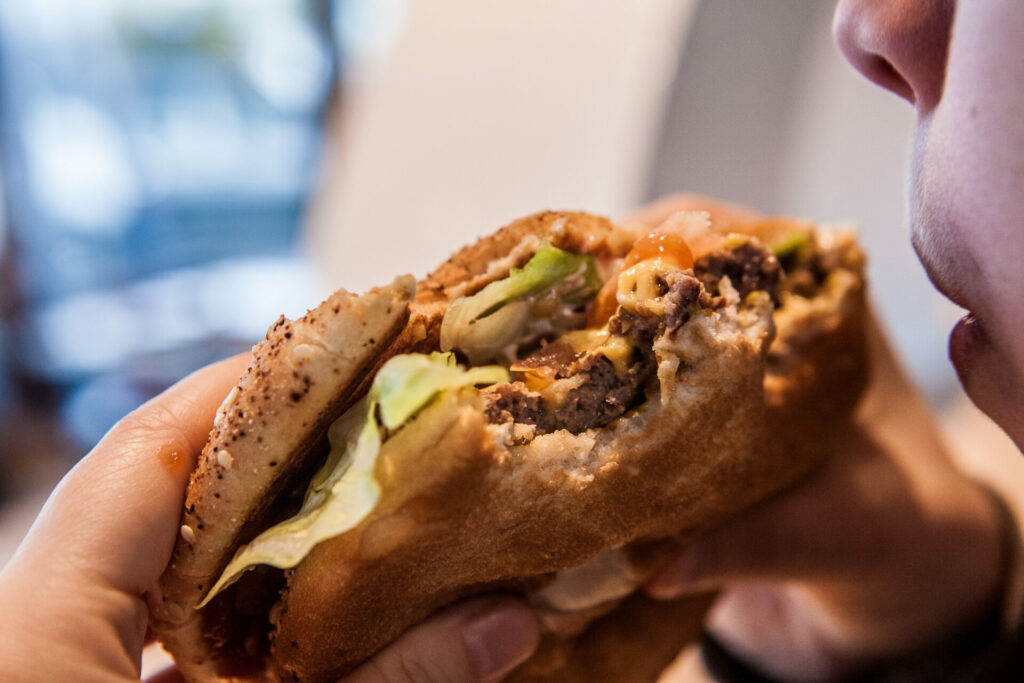Steep rises in food prices over the past few years have led to profound changes in Belgians' eating habits, with citizens increasingly choosing to dine at cheaper fast food outlets rather than traditional restaurants.
According to a recent study commissioned by Comeos, the Belgian trade and services federation, restaurants' total share of the on-site food consumption market has fallen to just 43.5%, down from 51.3% in 2019.
By contrast, the fast food sector's market share has risen by almost exactly the same amount over the same period, from 9.4% to 17.1%.
Wim Van Edom, the Head of Economic Affairs at Comeos, claims that these changes in consumer behaviour are predominantly a result of soaring food prices over the past couple of years.
"These are explained by inflation," Van Edom told Le Soir. "As their purchasing power is under pressure, consumers are going less to traditional restaurants and more to fast food outlets, because they are cheaper."
'Still not recovered from Covid'
The study also found that food delivery services, including Deliveroo, Uber Eats, and Takeaway.com, have benefited immensely from Covid-induced changes in consumer habits, with their revenue having risen 39% since 2019.
Furthermore, the rise of teleworking has contributed to a significant decline in "on-the-go" purchases of coffee, juice and sandwiches, with the number of such transactions having fallen by 28% compared to four years ago. "This [on-the-go] market has still not recovered from Covid," Van Edom noted.
In addition, the study reported that Belgians increasingly buy cheaper supermarket goods instead of more expensive fare produced by specialised food businesses (e.g. butchers, bakeries and cheese shops).
Related News
- EU food prices soar as agricultural sector reaps bumper profits
- Still getting 5 a day? High prices force Belgians to buy less fruit and veg
"Consumers are switching from Irish steak bought at the butcher to Belgian steak from the supermarket," Van Edom said.
Belgium's current food inflation rate is more than 30 times greater than it was two years ago, having risen from 0.3% in November 2021 to 9.2% today.
Prices for fruit and vegetables have increased at a much greater rate than other food items. A study published earlier this year by consumer rights organisation Test Achats found that iceberg lettuce is now 53% more expensive compared to last year, while prices for cucumbers and onions have risen 51% and 50%, respectively.
The steep price rises for healthier food items have also caused many Belgians to purchase unhealthier fare during their shop. One recent study by Aldi Belgium found that a quarter of Belgians buy less fruit and vegetables compared to last year.

